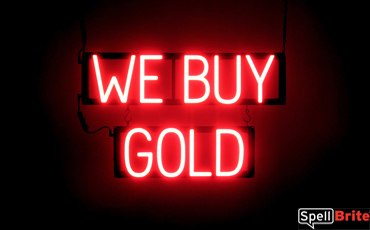Steering the Complexities of Selling Precious Metal to Purchasers in a Competitive Marketplace
Steering the Complexities of Selling Precious Metal to Purchasers in a Competitive Marketplace
Blog Article
Transacting gold can be a rewarding venture, but it also comes with its own array of obstacles. In a fierce market, understanding how to navigate the transaction process is crucial for getting the optimal value for your assets. Whether you are offloading jewelry, currency, or bullion, knowing the right steps to take can help you maximize your profits. This guide will examine the key factors to consider when selling precious metals, including market trends, appraisal, and finding the right buyers.
One of the first aspects to evaluate when selling precious metals is the present market trends. Precious metals prices vary based on multiple factors, including financial conditions, inflation rates, and international demand. Keeping an eye on these trends can help sellers determine the best moment to sell. For instance, if the price of precious metals is elevated, it may be a good opportunity to offload. On the other hand, if valuations are low, it might be prudent to hold off until they increase. Researching industry trends can provide insightful information and help sellers make educated choices.
Valuation is another important factor of selling gold. Before placing gold on the market, it is essential to understand its value. This involves understanding the purity of the gold, which is assessed in karats, and the weight of the piece. Sellers should think about obtaining their assets valued by a certified expert to ensure they have an accurate assessment. An appraisal can provide a definitive comprehension of the asset's market worth, which can help in discussions with potential clients. Knowing the worth of the assets can also prevent vendors from accepting bids that are too diminished.
Finding the right buyers is essential in a fierce market. There are multiple options available for transacting gold, including pawn brokers, digital platforms, and dedicated gold clients. Each option has its advantages and cons. For example, pawn shops may offer quick cash but often at diminished prices, while digital marketplaces can provide entry to a broader clientele but may demand more effort to market and sell the assets. It is important for vendors to research potential buyers and select the one that aligns with their selling objectives. Establishing relationships with trustworthy buyers can also result to better bids and a smoother transacting process.
When transacting gold, it is also crucial to be cognizant of the legal and moral considerations involved. Vendors should ensure that they are complying with local regulations regarding the transaction of precious metals. Additionally, being open about the condition and history of the assets can foster confidence with buyers. Responsible selling practices not only safeguard Recommended Site the seller but also contribute to a favorable reputation in the industry. This can result to recurring transactions and recommendations, which are important in a competitive environment.
In conclusion, transacting precious metals in a competitive market demands careful preparation and evaluation. By remaining informed about market trends, comprehending the valuation of gold, locating the appropriate clients, and complying to regulatory and ethical standards, vendors can navigate the challenges of the precious metals market effectively. With the appropriate approach, transacting precious metals can be a rewarding venture that fulfills the seller's financial needs.